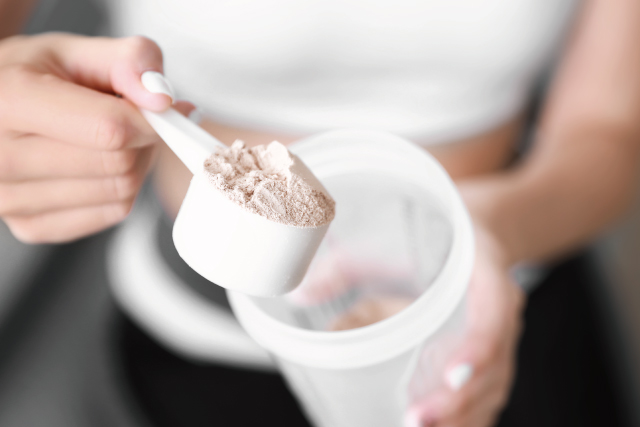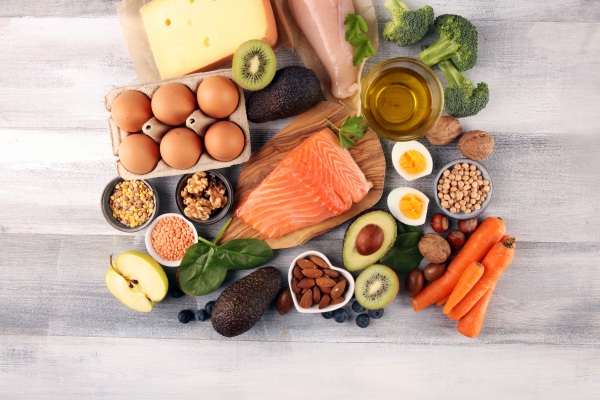Driven by health and environmental awareness, the plant-based food sector has experienced rapid growth, with Innova data indicating a 57% annual increase in global plant-based food launches from 2015 to 2019. Approximately 60% of consumers globally have incorporated more plant-based foods into their diets. According to Euromonitor, the global market size for plant-based milk beverages reached 40.68 billion RMB in 2022, growing by 5.8% compared to 2021. Main categories include soy milk, walnut milk, coconut milk, almond milk, oat milk, and mixed plant-based milks, with soy milk (11.37 billion RMB), walnut milk (10.98 billion RMB), coconut milk (10.62 billion RMB), and almond milk (4.02 billion RMB) accounting for approximately 91% of the market.

Amid the Surging Trend of Plant Milk, Urgent Need for Nutritional Innovation
Despite the surge in plant-based milk consumption, there are challenges in nutritional innovation. Plant-based milk often has lower protein content (ranging from 0.6% to 2%) compared to dairy milk due to limitations in plant ingredients and processing techniques. In the post-pandemic era, consumers are increasingly seeking products with higher protein content in their daily diets. Moreover, the amino acid profiles of most plant proteins are not ideal, with deficiencies in certain amino acids.
Flavor and Texture - Pain Points of Plant Milk
Flavor and texture remain critical factors influencing product repurchase rates. Plant-based milks often face challenges in this regard. For instance, soy milk may have a distinctive beany taste that some consumers find off-putting. Oat milk, in an attempt to achieve a smoother texture, often adds plant oils, resulting in an overpowering fatty taste that masks the natural oat aroma. Moreover, oat milk can exhibit a bitter taste due to inherent characteristics.
Yeast Protein: A Nutritional Innovation Solution for Plant Milk
Yeast protein presents a novel solution for nutritional innovation in plant-based milk. Angel Yeast produces AngeoPro yeast protein from brewer's yeast through enzymatic hydrolysis and extraction, yielding a new microbial protein with protein content exceeding 80%. As an emerging microbial protein source, yeast protein is environmentally friendly, sustainable, and has a short production cycle, low carbon emissions, and requires minimal agricultural land, aligning with green development principles. Angel Yeast, a major global supplier of yeast protein, adheres to non-genetically modified principles, ensuring its yeast protein meets non-GMO claims.
From a nutritional perspective, yeast protein offers a comprehensive and balanced amino acid profile, addressing the amino acid imbalance found in many plant-based milks. Importantly, yeast protein, derived from enzymes involved in human sugar metabolism and proteins constituting basic cell structures, better satisfies human nutritional needs compared to singular plant proteins. Taking oat milk as an example, Table 1 reveals that oat protein's amino acid levels are generally below WHO/FAO recommended values, highlighting the nutritional imbalance.
Table1: Composition of Essential Amino Acids in Different Proteins
Amino Acid | WHO/FAO Value (>18 years) g/100g | Yeast Protein g/100g Protein | Oat Protein* g/100g Protein | Barley Protein* g/100g |
Lysine | 4.5 | 9.43 | 0.84 | 2.8 |
Methionine + Cysteine | 2.2 | 2.63 | 0.7 | 2.11 |
Tryptophan | 0.6 | 1.31 | - | - |
Threonine | 2.3 | 5.41 | 0.86 | 2.88 |
Phenylalanine + Tyrosine | 3.8 | 10.84 | 1.95 | 9.16 |
Isoleucine | 3 | 5.94 | 0.78 | 3.15 |
Leucine | 5.9 | 9.78 | 1.83 | 6.54 |
Valine | 3.9 | 6.29 | 1.26 | 4.2 |
Additionally, yeast protein contains 5-8% lipid compounds, including unsaturated fatty acids, sitosterol, yeast sterol, and squalene, which often possess beneficial nutritional functions.
Yeast Protein Enhances the Flavor and Texture of Plant Milk
AngeoPro yeast protein also addresses flavor and texture issues in plant-based milk. Through continuous technological iterations, Angel Yeast has developed yeast protein products suitable for the dairy and dairy alternatives. Compared to competitors, Angel Yeast's yeast protein has a purer flavor with minimal fermentation notes and subtle nutty and cereal aromas. Tests have shown that even with a 0.8% addition of yeast protein to oat milk, it effectively masks the fatty taste, improves bitterness, and enhances the release of cereal flavors, resulting in an improved product experience. Similarly, applying yeast protein to barley milk can mask oiliness and fishy flavors while enhancing the cereal aroma.
Furthermore, another protein variant significantly improves the texture of plant-based milk. Without homogenization, this protein provides a buttery sensation. With homogenization at pressures of 300 bars or higher, it offers a smoother, oil-like sensation. This characteristic, when applied to plant-based milk requiring high-pressure homogenization, enhances the smoothness, approaching the drinking experience of traditional dairy products.
In the wave of global carbon neutrality, the plant-based milk market is poised for sustained high growth. However, addressing current challenges in plant-based milk R&D, yeast protein introduces a groundbreaking solution to enhance nutritional value and improve flavor and texture. It opens up new possibilities for innovation in plant-based milk, ensuring a brighter future for this dynamic industry.
Reference
【1】Xu Yingyi, Wang Yu, Lin Wei. Study on the physicochemical properties of enzymatic extraction of oat protein [J]. Food Industry, 2018 (7): 4
【2】Liu Lipin. Study on the Structure and Functional Characteristics of Highland Barley Protein [D]. Northwest A&F University, 2015




